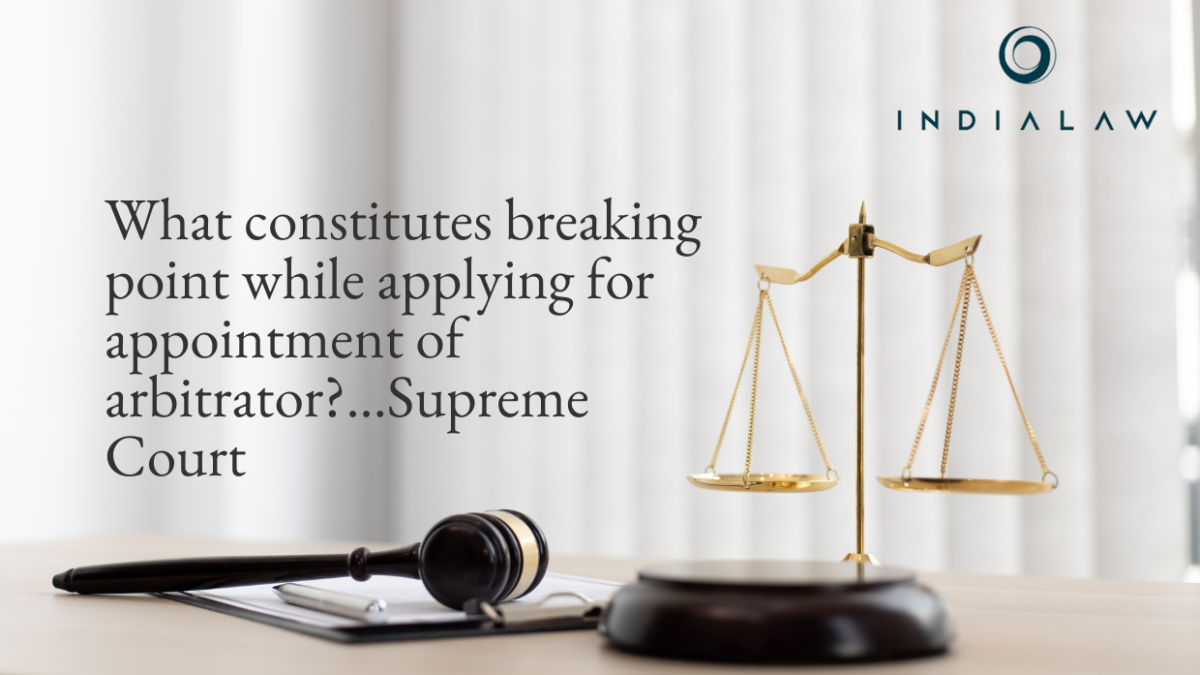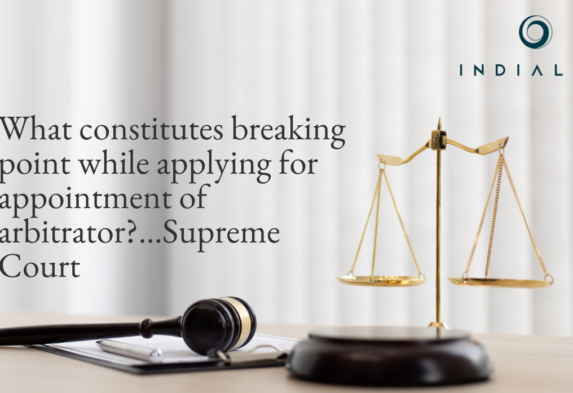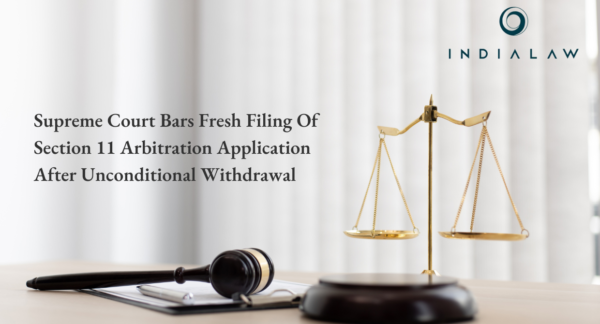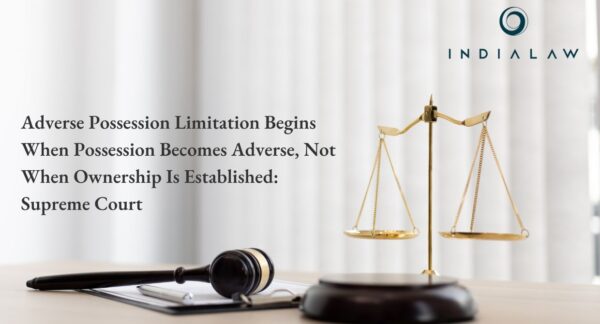What constitutes breaking point while applying for appointment of arbitrator?…Supreme Court


Introduction
In the recent judgment of M/s. B and T AG vs. Ministry of Defence[1],the Supreme Court (“the SC”) while discussing on issues of limitation for filing of application under S.11 (“the Application”)of the Arbitration and Conciliation Act, 1996 (“the Act”) for appointment of the arbitrator(s)held that the said application shall be filed once the cause of action arises that is from the date of breaking point between the parties. The basis of the said judgment was that it is imperative that a party realises when a cause of action arises to proceed against the opponent.
Brief Facts
In the year 2009, the Respondent floated atender for acquiring sub machine guns wherein the Petitioner participated by submitting its bid. The Petitioner’s bid was the lowest of the all bidders and therefore, in the year 2012, a contract with an express arbitration clause was entered into between the Respondent and the Petitioner for obtaining 1,568 sub machine guns.
On account of delay in supply of goods by the Petitioner, the Respondent vide letter dated 24.10.2014 encashed the warranty bond furnished by the Petitioner in the nature of applicable liquidated damages. Moreover, a proposal made to Respondent by the Petitioner to review the said encashment was also rejected. Consequently, disputes arose between the parties. Since the year 2016 till about 2019, the parties were actively engaged in bilateral discussions to resolve the disputes, however, the said discussion could not fructify. Accordingly, the Petitioner was compelled to approach the Hon’ble SC for appointment of arbitrator to adjudicate upon the disputes by filing the Application under the Act.
Submissions made by the parties
In light of the above facts, the counsel for the Petitioner vehemently submitted on the point of limitation that the Petitioner was actively engaged in discussions to amicably settle the disputes with the Respondent as necessitated and warranted under the dispute resolution clause of the contract. The discussion was contemplated to be in the interest of the defence procurement contracts wherein initiating arbitral proceedings should be the last resort for the concerned parties.
The counsel for the Petitioner while making a submission on the issue of limitation relied inter alia on the judgment of the SC in Geo Miller and Company Private Limited v. Chairman, Rajasthan Vidyut Utpadan Nigam Limited[2] which held that the time occupied in bona fide pre-arbitration negotiations may be excluded for the purpose of computation of the period of limitation. It was further argued that the breaking point of negotiations ought to be 22.09.2017 that is the date on which the Petitioner received the letter of rejection to reconsider the encashment as against the date on which the warranty bond was in fact encashed and money was deposited into the government’s account.
But the SC may not decide what is the breaking point of the negotiations at the time of entertaining the Application as it is a mixed issue of fact and law which ought to be decided by a duly constituted arbitral tribunal.
The counsel for the respondent while bringing on record the list of dates and events fervently opposed not only the application for appointment of arbitrator but also the claims made by the Petitioner, both being time barred. According to the Respondent’s counsel, the period of limitation begins to run from 26.09.2016 that is the date on which the cause of action arose. Interestingly, the arbitration invocation notice which was issued 5 years after the cause of action arose as against prescribed period of 3 years as provided under Article 137 of the Limitation Act 1963 was also declared time-barred. Considering the aforesaid facts and law, the counsel for the Respondent sought rejection of the application.
Decision
The SC elucidated the meaning of the term “breaking point” to mean “a point at which any reasonable party would have abandoned efforts at arriving at a settlement and contemplated referral of the dispute for arbitration.” In this case, the SC held that breaking point shall be the day when the warranty bond was encashed and transferred to the account of the government. Thus, cause of action shall be said to arisen from such day and limitation shall be computed from that day onwards.
Furthermore, as the Act does not prescribe any time limit for making the said Application, it was held that Article 137 of the Limitation Act, 1963 would apply. As a result of this, time limit commences when the cause of action accrues and that such an accrual is not postponed by mere exchange of letters for settlement for an indefinite period of time between the parties.
Considering that the claim is hopelessly time barred under the Limitation Act, 1963 and that the petitioner has slept over its rights for more than 5 years, the Application stood rejected.
[1] Arbitration Petition (C) No. 13 of 2023
[2](2020) 14 SCC 643




